Zabriskie reflects on his past
Garmin-Sharp rider talks about his experience of coming clean
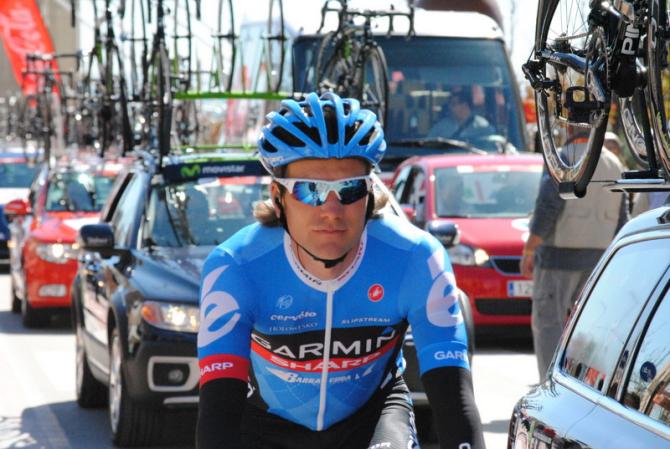
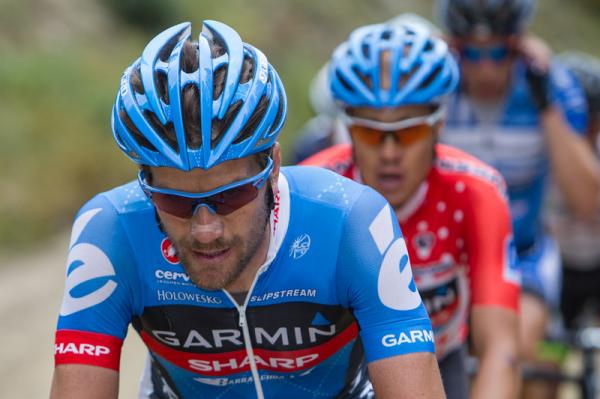
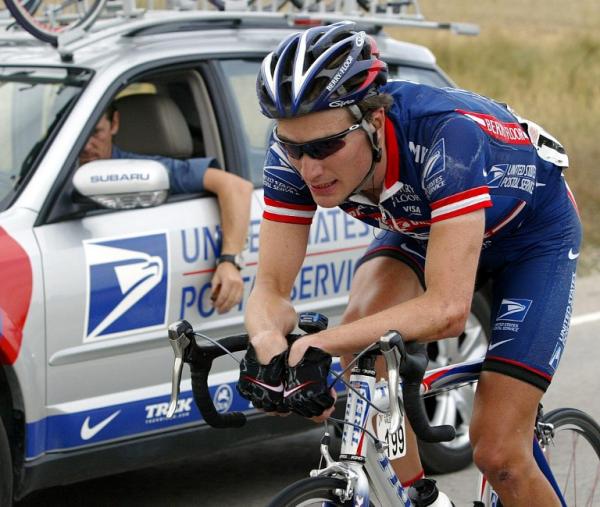
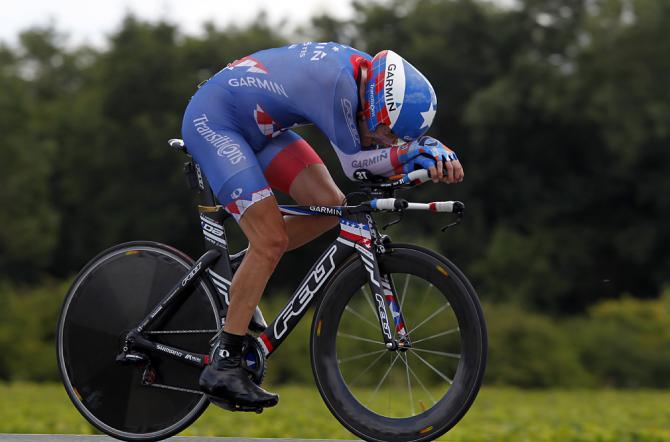
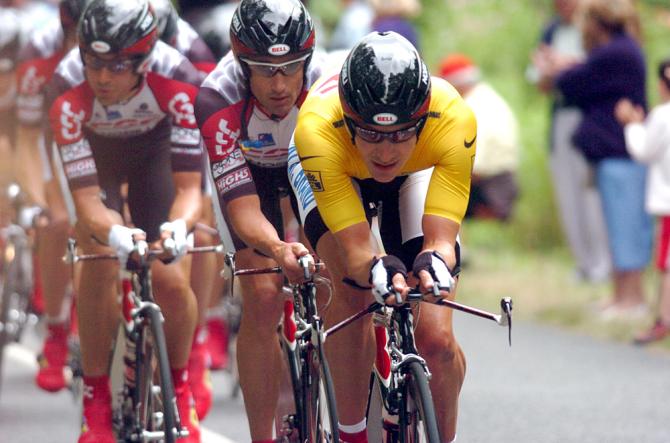
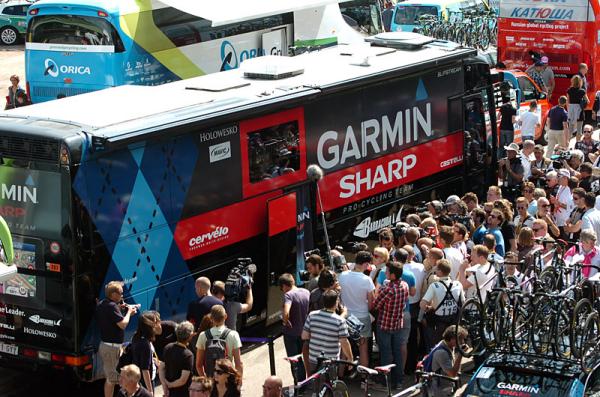
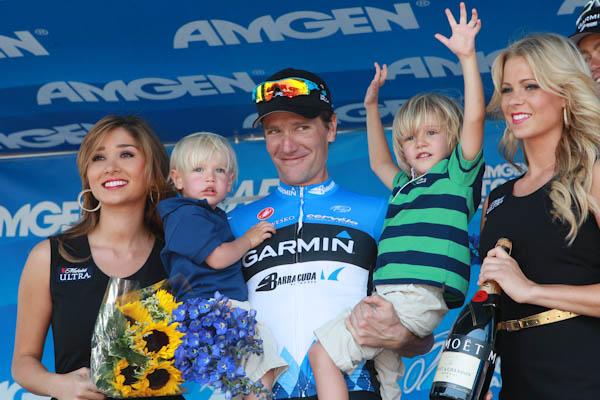
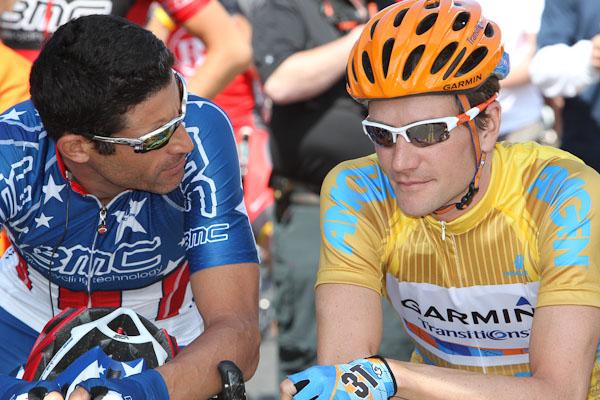
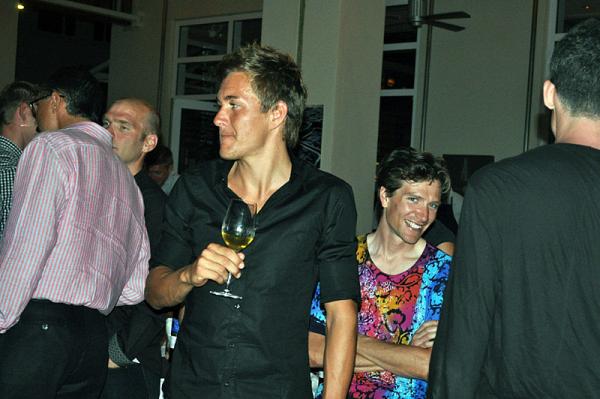
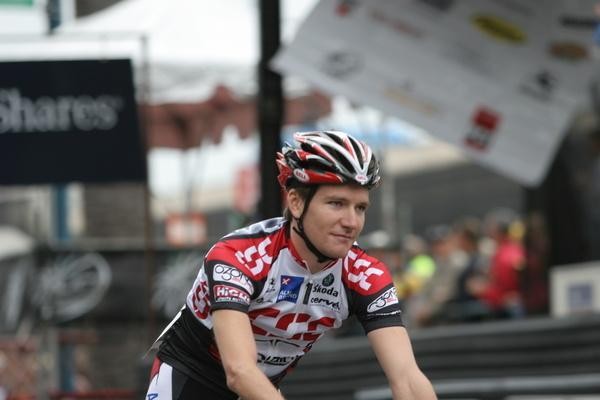
Dave Zabriskie pauses and looks up at the USADA officials in front of him. It's May 2010 and having volunteered to come into USADA, Zabriskie is faced with the realisation that he's about to commit down a path that will include a fully fledged confession to his doping past.
"Sorry, what did you say?" Zabriskie asks.
"I said would you like a coffee, Dave?" Travis Tygart asks again.
Zabriskie puts his hands flat down on the table and leans back to steady himself.
"Maybe that's where I should start, with a story about having a coffee."
It's 2003, and in his 20s and during a third season with US Postal, Zabriskie sits down at a café in Girona, Spain. At the time the small Spanish town had become a Mecca to American riders, with Lance Armstrong, Floyd Landis and a host of other names taking up residency in the city's picturesque walls.
Joining Zabriskie are US Postal team manager Johan Bruyneel, teammate Michael Barry and team doctor Luis del Moral. There's little time for chit chat once they order their drinks and it's straight to business as Bruyneel and del Moral explain the nature of the meeting. The subject doping is doping with an a la carte menu of products to choose from.
Get The Leadout Newsletter
The latest race content, interviews, features, reviews and expert buying guides, direct to your inbox!
"For me personally, that first instance in 2003, it was pretty traumatic," Zabriskie recalls now as he talks to Cyclingnews.
"I can only describe it as a plane crash and you're going down, down, down and there's nothing really you can do to get out of it."
Despite numerous questions and hesitations on Zabriskie's part there comes a point when his resistance is reined in. Bruyneel and del Moral have made their case and not even Michael Barry, who Zabriskie was relying on for support, can offer him any assistance.
The group leave the café and walk to Michael Barry's apartment, where, according to Zabriskie's affidavit and what he told USADA, he was injected by del Moral with EPO. He had already gone down the path of injecting "recovery" products, but this next rung on the ladder was a different matter. There were no grey areas. This was grade A cheating.
That evening after he'd returned home Zabriskie had a meltdown. He called his mother in the US and through the tears told her about the day's events.
"It was my choice though. In the end it was me. They didn't put a shotgun to my face, hold me down and stab a needle into my arm. It was coffee table, with me, Johan, Barry and a doctor. I was the odd man out trying to get out of it and they were sold on the idea. There was a fair amount of pressure but looking back I wish I could have just walked away from the table and said 'fuck you' but that didn't happen."
"I'd convinced myself and become stupidly naïve. When I got fifth at Dunkirk, I remember thinking 'wow maybe it is clean. Maybe if you're really talented you can perform well.'"
Back into the USADA briefing room, Zabriskie recounts the episodes of his doping: the testosterone patches, the sporadic EPO use and all details and faces he came across along the way.
Floyd's Tour de France
The tipping point for Zabrskie came in 2006. Now at CSC he was regarded as one of the leading riders in the team. He'd worn a yellow jersey at the Tour and had forged a reputation as one of the best time trialists in the world.
But in 2006 the landscape changed. Zabriski's dabbling in testosterone and EPO looked small fry to the leagues of riders manipulating their blood and the vast concoctions some of his friends and teammates were enjoying.
"I know that there are a lot of people out there saying that it's all really fishy that you all stopped taking drugs at the same time but for me, having seen what Floyd went through in 2006, that was enough for me," Zabriskie says.
"I didn't take that much but what little I did take, I had to stop."
"Back in 2006, I knew what Floyd was doing. I knew that I'd have to pull for Ivan Basso at CSC during the Tour. I thought 'shit Floyd is doing this much so I'm going to have work for Ivan so I'm going to need something so that I'm not dropped and can at least work for a few miles."
"I came in and saw Levi and Floyd playing with each other's blood once. That was pretty gruesome and I really didn't want to do that kind of stuff. That was a really strange scene, walking in and seeing that. You're not thinking much because your mind is just blown away by what you've seen. For me, 2006, before the Tour that was it, I knew I had to stop."
If there were any doubts, they were put to bed after Landis tested positive within days of winning the Tour. Zabriskie vowed never to take drugs again as he witnesses first hand how is former housemate nosedived into a state of denial and bitterness. Landis lost everything as he fought to clear his name, and it wasn't a situation Zabriskie wanted to replicate.
In 2007 he called for transparency within the sport, even offering to wear an electronic tag but while he talked the talk and walked the walk, he still had skeletons in his closet. They may never have come out had Landis not returned to the fray and unleashed a tirade of emails upon the world in May 2010.
From that point on there was no going back for anyone involved in the sport and even though some individuals attempted to ignore the truth and their own lies, Zabriskie felt that it was time to cooperate.
"Some people were still blowing it off and saying that this sort of thing had happened all before, but during California I made the decision that I would go into USADA and tell them the truth."
He briefly talked to Bruyneel, Armstrong listened in the conversation, but even though Armstrong at the time was confident that he could see off the noise from the Landis camp, Zabriskie felt it was time.
"I wanted to do it pretty quickly," he says, explaining that he didn't talk to his teammates or the others named in Landis' emails.
"So I went in two days after that race. Floyd came out, and then two days after the race I was in there."
Tygart made a brew of coffee and Zabriskie told him everything: from the first time he met Armstrong and Kevin Livingston to the injections of EPO and the subsequent web of lies. It all came out. What made Zabriskie's affidavit stand out from some of the others in USADA's report was the tragedy within in it. A poignant moment came when he touched upon the substance addiction his father went through and how he was absent from his father's funeral due to racing in Europe.
"I didn't really go in there thinking about any repercussions," he said, describing the sense of relief that came with confessing.
There would always be repercussions though. USADA slapped him and the others who had cooperated with six-month bans. Off season and minimal in length they may have been but Zabriskie feels some sense of fairness.
"It all really happened during Colorado when USADA came out and said that we'd all be getting six months. I didn't know how it was going to play out when I went in and talked to them."
"I don't know, maybe I was over sharing at the time," Zabriskie says when asked why he chose to share his late father's history.
"Look, I got into cycling as a healthy escape from what was going on at home with my father. When I came into this sport I wanted to be the opposite off all that he was and not do bad things. You'd think that sport would be the healthiest, cleanest way to go. At least I did, but I came to understand how wrong I was."
The ban
During his sixth months on the sidelines, Zabriskie kept a low profile. In the main, he trained on his own, often choosing not to mingle with other riders if he saw them out on the roads. While Tom Danielson went on a book tour and Michael Barry penned articles on how to clean up the sport within five minutes of tarnishing it, Zabriskie vanished.
"It was emotional for sure, for me anyway. I feel lucky that I can still race and be back within the sport. I'm sorry that it all happened and I can be the hardest critic on myself, more so than anyone else can probably be," he says, realising the severity of both his actions and the fallout.
"I gave an interview to someone, I think it was a London paper, during Catalunya after I came back, and it threw me off my race a little bit. I started to think about it all and it really messed with my head. It was hard to process the whole thing."
Since coming back there's not been any real issues. During Utah someone came up to me in the bunch and said to me 'you were forced into it, forced to talk to USADA', but he got that one pretty wrong. We talked about it, and I think it's fine now. He thought that nothing would have happened if we'd not been forced to talk. I told him how it actually went down and now they have a better understanding of the whole thing
"But it was a really hard process. The hardest part? I don't really know and I can't narrow it down to one solid thing because the whole time was really tough but I felt happy that I could go in and talk. That's what I really wanted to happen all along, it's just that the way it came out was in this avalanche."
It was a huge amount of information for the sport to digest. Aside from the first batch of confessions there was the Oprah show and Lance Armstrong's own declaration that he too cheated. Wave after wave and then drip after drip, a generation of riders were under the spotlight and while some lied - a continue to do so - Zabriskie believes in the notion that despite so much damage, the right course of action was taken.
"I hope that it just incentivizes people to come forward if they have information, that's how I see it. Had I understood how USADA worked back in 2003, I probably would have gone straight into them because really we both had the same goal - a clean sport. But at the time, I just kept thinking that I moved into the other side and then you're just scared because you've picked that side and there's no going back. I hope that people have a better understanding of USADA now though and that if something happens to them, they'd just go straight to them."
"At the time, all I could think of was that I'd done something really, really bad and I didn't know what to do. It's just bullshit that you're a kid, you have the talent, you want to pursue your dreams and then you have a rude awakening when you see all that is around you. In the end, however, this will be a positive for the sport. I hope kids never have to face those choices and that's a good thing."
Returning to the sport
Zabriskie's season since returning from his ban has been disrupted by injury, with a broken collarbone at the Tour of California ruling him out of the Tour de France team for the firs time since 2008. A recent return to the Tour of Utah and a start at next week's US Pro Challenge mark important steps in his season as he toys with the options of retiring or continuing into 2014.
"I'm not sure what I'll do. I haven't talked to Jonathan or the team so I'm not sure what they have in mind. I'd like to do another year or two. I'm only 34 and guys are going pretty long these days."
"Maybe I could sign a day-to-day contract and call up Jonathan and tell him if I'm coming into work or not," he jokes.
Garmin are a team that Zabriskie has called home since 2008, when Jonathan Vaughters set up shop and vowed to run a clean operation. The team understandably supported the stance of cooperation with USADA and Zabriskie has been a force within the team throughout its inception.
"I do care what fans think," Zabriskie says finally.
"I care a lot about them. It should be a clean sport and people should be able to think that it's clean and I feel bad for what's happened. I give a shit about the fans, especially the young ones. They look at the sport and they think, that's what I want to do when I grow up and then they grow up and they get to that point like I did. There's a lot of bullshit, and I know I was part of that, but I hope that what I did in coming forward, well, that it makes a difference and that some kid who wants to get into cycling, he isn't presented with the choices I had to make."
Tygart, as he sips his morning coffee and reads Zabriskie's last comment, would probably agree.
Daniel Benson was the Editor in Chief at Cyclingnews.com between 2008 and 2022. Based in the UK, he joined the Cyclingnews team in 2008 as the site's first UK-based Managing Editor. In that time, he reported on over a dozen editions of the Tour de France, several World Championships, the Tour Down Under, Spring Classics, and the London 2012 Olympic Games. With the help of the excellent editorial team, he ran the coverage on Cyclingnews and has interviewed leading figures in the sport including UCI Presidents and Tour de France winners.
